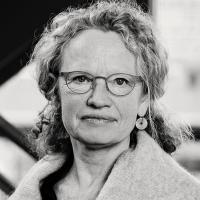Miracles on a motorbike
The new Nicaraguan national water law was passed in September 2007 by parliament and in November 2007, President Daniel Ortega signed the bylaw that regulates the national water law. The water law aims at regulating water use to ensure social and economically beneficial water use.
Regulating the water use of single large scale users and providing domestic water for urban water users is practically possible through the effort of national water authorities and national water utilities. However, regulating the water use of numerous small-scale irrigation and at the same time ensure the availability of drinking water for rural households who often have no established drinking water supply system, is a considerable challenge that will require that the few district environmental officers perform miracles on their motorbikes to inspect and supervise the numerous small-scale water users..
The Nicaraguan Competing for Water research team convened on February 27, 2008, the 2nd round table with participation from ministries,
water agencies, local authorities, NGOs and civil society organizations to discuss the implications, the ambiguities and the challenges involved in implementing the new Nicaraguan water law.
Authorized irrigation
One of the challenges is how to regulate small-scale farmers’ use of water for irrigation. In many parts of Nicaragua, farmers use water from springs and streams for watering plots of vegetables, potatoes, fruits, beans, etc., often simply by conducing the water from the spring or stream to the plot by a plastic tube.
The bylaw states that farmers who irrigate less than three hectares or use less 3,000 m3 of water per month need an authorization from the district authority. Such an authorization may be given only if the specific water resource is not already used for domestic water supply, which always should receive priority over the use of water for irrigation, and on the condition that only approved agricultural chemical are used.
Miracles on a motorbike in the Condega district
Estimates suggest that in a small district like Condega in the northern part of Nicaragua, some 400 farmers are currently irrigating small plots and would thus be in need of obtaining an authorization from the district authority in order to comply with the newly passed law and bylaw.
This, however, will require miracles on a motorbike. Condega district currently has only one district environmental officer, equipped with a motorbike. Apart from now becoming charged with the task of authorizing and monitoring small-scale farmers’ use of water for irrigation and ensuring that the water resource in question is not used for domestic consumption, the district environment officer is already charged with tasks like preventing and controlling illegal timber logging and mediating in environmental conflicts with respect to use of natural resources, including water.
Competition for water
Competition between small-scale farmers who use water for irrigating crops and rural men, women and children who use the same water resource for drinking, bathing and washing is a common source of conflict in rural areas, partly because using water for irrigation does not leave sufficient water for domestic uses, partly because run-off water from the irrigated plots which is led back into the water body often is contaminated from the use of agricultural chemicals, leaving the water unsuited for drinking and bathing. Yet, irrigation is often essential to making small-scale farming a viable livelihood and a way out of poverty.
Therefore, there is a strong need for better regulating rural water use to avoid conflict and accommodate different water uses. However, unless district authorities are better staffed and equipped to assume this challenge, enforcement of the new national water law and the achievements of its objectives of contributing to socially, economically and environmentally sustainable water use, will depend on miracles on a motorbike.
The Competing for Water programme will continue its research-based dialogue with Nicaraguan policy makers and practitioners in search for improvements in the local water governance.
DIIS Experts

